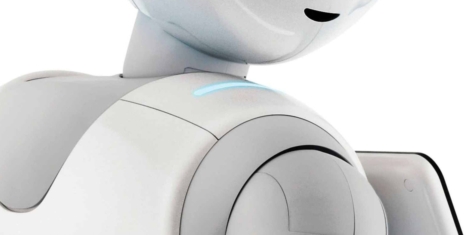February 27, 2017
UK firm asks 16,000 employees whether their jobs could be done by robots 0
 UK insurance firm Aviva has asked 16,000 of its employees whether they believe their jobs could be done better by robots. The consultation process will see those people who answer yes retrained for a new role within the business. Research by Oxford Martin School recently warned that 35 percent of jobs in the UK were in danger of automation over the next 20 years. Insurance underwriters were at the top of the list, rated 98.9 percent at risk. Despite frequent warnings that automation will disrupt a wide swath of industries, many workers believe that their own job is safe. This is in spite of warnings such as that from Mark Carney, governor of the Bank of England, who claimed recently that automation could put 15 million British jobs at risk, equivalent to nearly half of the 31.8 million people who work in the UK. Most recent research backs this up. A White House report from 2016 concluded that between 9 percent and 47 percent of all American jobs are vulnerable, including around 80 percent of jobs paying less than $20 an hour. Image: SoftBank Robotics
UK insurance firm Aviva has asked 16,000 of its employees whether they believe their jobs could be done better by robots. The consultation process will see those people who answer yes retrained for a new role within the business. Research by Oxford Martin School recently warned that 35 percent of jobs in the UK were in danger of automation over the next 20 years. Insurance underwriters were at the top of the list, rated 98.9 percent at risk. Despite frequent warnings that automation will disrupt a wide swath of industries, many workers believe that their own job is safe. This is in spite of warnings such as that from Mark Carney, governor of the Bank of England, who claimed recently that automation could put 15 million British jobs at risk, equivalent to nearly half of the 31.8 million people who work in the UK. Most recent research backs this up. A White House report from 2016 concluded that between 9 percent and 47 percent of all American jobs are vulnerable, including around 80 percent of jobs paying less than $20 an hour. Image: SoftBank Robotics









 Employees would like more freedom and flexibility at work with over half believing that the structure and culture of their workplaces are holding them back from doing their job more effectively (55 percent and 53 percent respectively). That’s according to new research from ILM, which has launched a new
Employees would like more freedom and flexibility at work with over half believing that the structure and culture of their workplaces are holding them back from doing their job more effectively (55 percent and 53 percent respectively). That’s according to new research from ILM, which has launched a new 
 The majority (79 percent) of workers say reliable and modern technology is more important to them than office aesthetics, while accessories such as ping pong tables, slides, hammocks and wacky office designs may look good in pictures, but they don’t necessarily make employees any happier or productive. The is according to a survey, conducted by storage firm Kiwi Movers, which found that 86 percent of UK adults who work in an office said fun features were of no specific value to their working life, 11 percent said they were nice-to-have and of some value and 3 percent said they were very valuable. The most popular office perks are those offer an immediate tangible benefit to the employee, but even so, as many as 23 percent don’t take advantage every day; while 71 percent overall said they’d like more space in their office and of those, 58 percent believe that could be achieved by removing non-essential items. The research also found that younger workers were more likely on average to take advantage of ‘environmental’ perks like chill out areas and recreational equipment.
The majority (79 percent) of workers say reliable and modern technology is more important to them than office aesthetics, while accessories such as ping pong tables, slides, hammocks and wacky office designs may look good in pictures, but they don’t necessarily make employees any happier or productive. The is according to a survey, conducted by storage firm Kiwi Movers, which found that 86 percent of UK adults who work in an office said fun features were of no specific value to their working life, 11 percent said they were nice-to-have and of some value and 3 percent said they were very valuable. The most popular office perks are those offer an immediate tangible benefit to the employee, but even so, as many as 23 percent don’t take advantage every day; while 71 percent overall said they’d like more space in their office and of those, 58 percent believe that could be achieved by removing non-essential items. The research also found that younger workers were more likely on average to take advantage of ‘environmental’ perks like chill out areas and recreational equipment.






















December 12, 2016
Can an organisation simply buy employee motivation? 0
by Matias Rodsevich • Comment, Workplace
(more…)